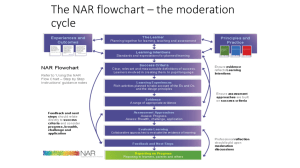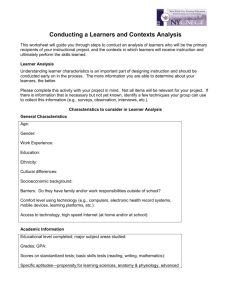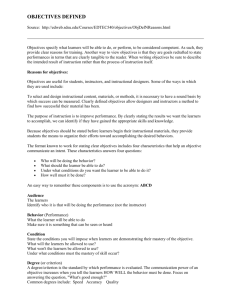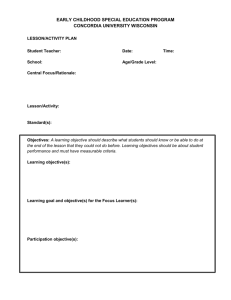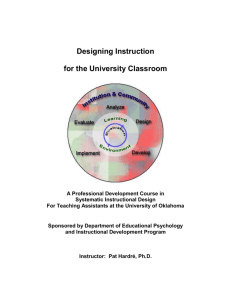Instructional Design Analysis
advertisement
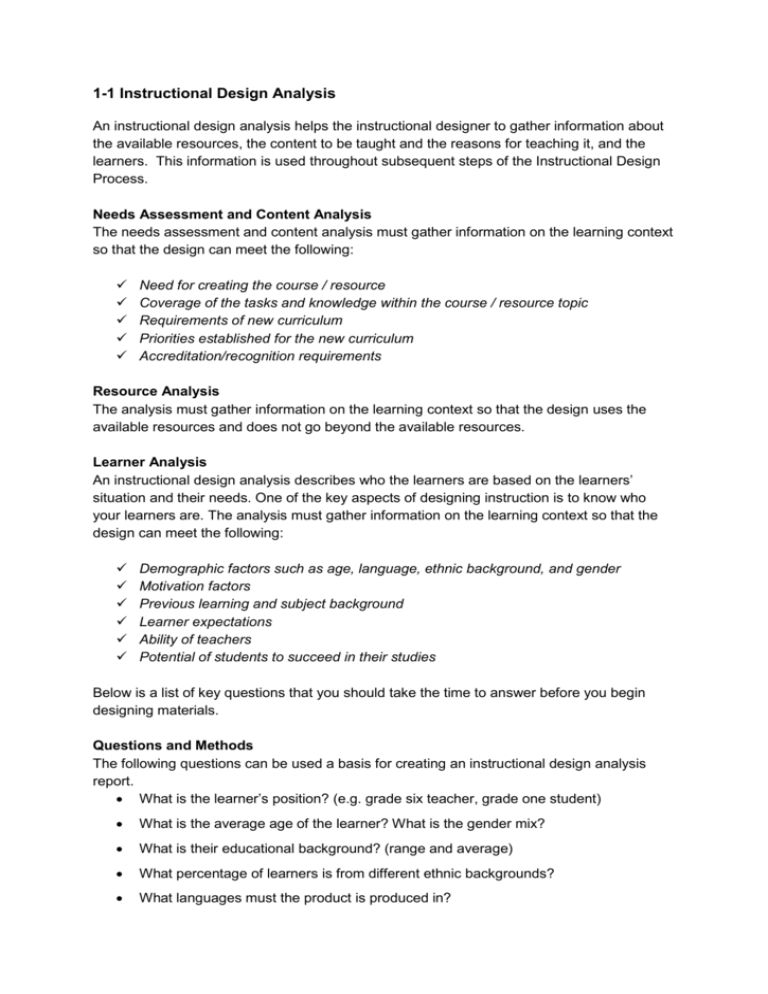
1-1 Instructional Design Analysis An instructional design analysis helps the instructional designer to gather information about the available resources, the content to be taught and the reasons for teaching it, and the learners. This information is used throughout subsequent steps of the Instructional Design Process. Needs Assessment and Content Analysis The needs assessment and content analysis must gather information on the learning context so that the design can meet the following: Need for creating the course / resource Coverage of the tasks and knowledge within the course / resource topic Requirements of new curriculum Priorities established for the new curriculum Accreditation/recognition requirements Resource Analysis The analysis must gather information on the learning context so that the design uses the available resources and does not go beyond the available resources. Learner Analysis An instructional design analysis describes who the learners are based on the learners’ situation and their needs. One of the key aspects of designing instruction is to know who your learners are. The analysis must gather information on the learning context so that the design can meet the following: Demographic factors such as age, language, ethnic background, and gender Motivation factors Previous learning and subject background Learner expectations Ability of teachers Potential of students to succeed in their studies Below is a list of key questions that you should take the time to answer before you begin designing materials. Questions and Methods The following questions can be used a basis for creating an instructional design analysis report. What is the learner’s position? (e.g. grade six teacher, grade one student) What is the average age of the learner? What is the gender mix? What is their educational background? (range and average) What percentage of learners is from different ethnic backgrounds? What languages must the product is produced in? How will learners use the product? (site context – Appendices 3.7.1 and 3.7.2) What previous experience do learners have with using DE products? Questions to determine learner needs include: What knowledge and skills in the topic do they currently possess? What knowledge and skills in the topic are they required possessing? What are the gaps between #1 and #2 that can be addressed by distance education? How do the learners and their employers prioritize these gaps? What are the expectations of learners and their employers regarding how the needs should be addressed? What are the expectations of learners and their employers regarding how learning of the topic should be assessed and recognized? Information to help answer the questions suggested above can be gained from the following information gathering strategies: Direct observation (site visits) Consultation with persons in key positions, and/or with specific knowledge Interviews Focus groups Tests Work samples Questionnaires Review of relevant literature Records and report studies



